American Chinese writer Tan Enmei interview: "intention" about novel creation
Author:Art newspaper Time:2022.09.02

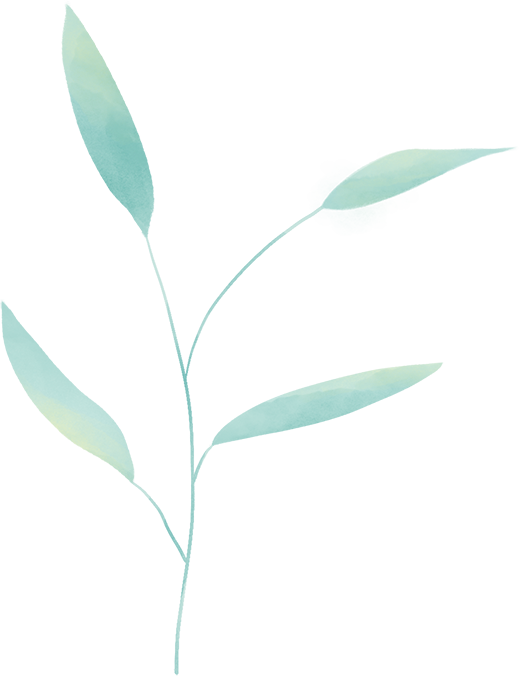
"Intent" about novel creation
-A American Chinese writer Tan Enmei Interview-
Wen | Wang Jinghui
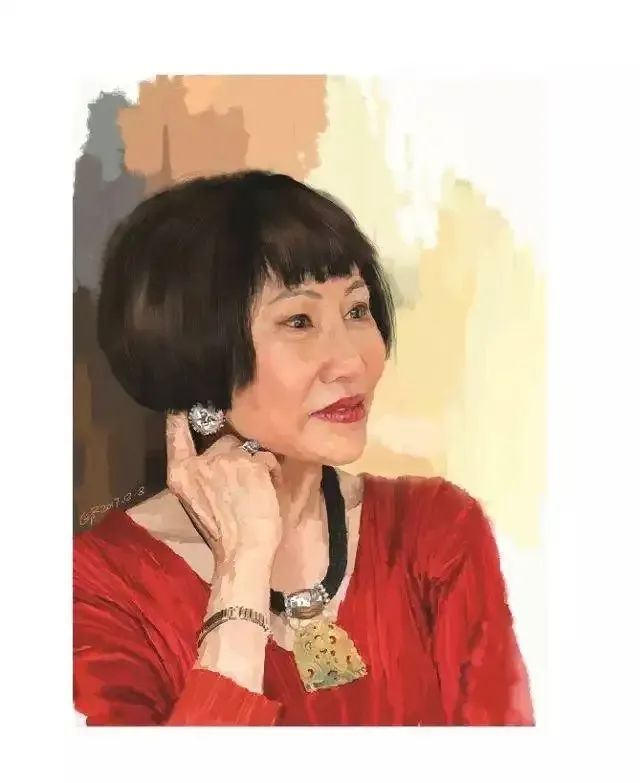
Wang Jinghui: In an interview, you talked about Koche's novels. You said that after reading "Shame", you even want to stop writing. What elements do you have such an idea and expression in the novel?
Tan Enmei: Some of the reasons I admire lies in his writing skills. He can tell a story without leaks, and the narrative is very natural. In this clear narrative, he contains his profound wisdom and historical outlook, as well as the deep -rooted racism in society. These contents are not for far -fetched into the story. They just appear there naturally. The story of the story is also very direct, and you will understand the character and his impulse in the story. You can see how the shortcomings of the characters refer to the greater social problems involved in his country, and these unresolved situations will continue to bring more terrible consequences. He cannot stop his bad behavior. Novels can have a disruptive force, so that people can see what the danger of the world is: racism, violence, contradictions, distorted intentions, saving people, and destroying them. The person who saved animals was the sister -in -law who slaughtered animals. He seemed to be effortless to put these into his novels. I know, of course, this is not really effortless. But for readers, it feels like this. Therefore, when I read such a novel, I was annoyed because I didn't write anything important. Due to the new reality, I have to write a new book. I need to fully understand what has happened, and I also need to find a way of understanding, and even hopes. But I also know that this story should not be too simple or aged -like a beautiful victory over evil, and now we can continue to advance such stories. The work must face the darkness of human beings, not preaching, nor can it embed the philosophy of conclusions or self -containing, because that, the story will only become mission. I want to write a story about people's private stories. These people have defects and prejudices and live in intricate worlds.
Wang Jinghui: I just recently translated the latest novel "The Death of Jesus". His novels will not use too much plot, but as you say, he easily and naturally let you realize something from the novel.
Tan Enmei: None of his works I have read is high. I think many writers who write a grand theme failed because they brought a tone of everything that they knew from the beginning. They seem to want to say everything they know, and to teach readers with their own cognition. In the story I admire, there is a voice saying to me, and the story is also being explored. The author and readers will achieve the understanding point.
Wang Jinghui: When it comes to novel creation, in the trailer of "Master Class", you say a very profound sentence: Some people think that novels are a bunch of lie, but you think novels are one of the best ways to find out the truth. So I wondered, how do you use this artistic method of "telling the truth through lying" to tell the reader the truth in your novel?
Tan Enmei: First of all, we must figure out what is a lie and what the truth is. The purpose of a lie is to deceive people, and then make a profit by themselves. Lies are another version that fabricate one thing happened. The novel is to create some new things, create a world of novels, the characters in it are credible, the scene is possible, what happens is unpredictable, but it is also inevitable. Readers will voluntarily put on their own distrust, enter the world of novels to obtain pastime, and at the same time find the true resonance with him in the novel. So the novel is really not a fact (factor), but a understanding of self and others. As a writer, when you discover your true truth, if you make it concrete and be perceived, you can also provide a universal truth. I think that is the reader's feeling of "Happy Blessings". The content I wrote is also the content that other women generally feel.
Wang Jinghui: In reading, I think you have a unique way to show Chinese culture from different periods to readers, such as the novel "Fantasy Valley", which can help readers understand the prostitute culture of old Shanghai. This is very fresh and interesting. Reading experience.
Tan Enmei: Do you know why I write a prostitute's story?
Wang Jinghui: Is it because of your grandmother's photo?
Tan Enmei: Yes, from the photo of my grandmother, there is a possibility that she may have been a prostitute. But even if you think about it, you will feel that I am blaspheming her. I actually resisted the background of the novel as a brothel. I will stand up for myself to question that using such exotic fun is a bad routine. But I have to break this restraint. This is the secret that happened in our family. This history affects my mother and my life, so I want to understand. These are not to prove her past, but to think about "who she is".
Wang Jinghui: Remember that in the explanation of "Master Class", you mentioned that you have used a magnifying glass to observe the details of the clothing in the photo, and you do observe very carefully.
Tan Enmei: When I started writing "Happy Blessing", I was very careful and even a little nervous. I wanted to write things related to China, and I grew up in the United States. I have no direct experience in living in China, so how can I write people who live in this culture in the past? Well, I can only write from my understanding of my mother and family, from that perspective, writing my understanding of the family I grew up, what they said and what they thought. After writing these things, I am also grateful that no many Chinese readers have questioned that this is not the case at all. On the contrary, I remember a reader said that a town I described was like a town in reality many years ago. But in fact, it was just a town I imagined, a town that suffered a flood. Wang Jinghui: Yes, this is an extraordinary writing ability. You can describe something that you are not personal experience, but others will prove that what you describe is the same as the reality he has experienced. This has a feeling of "effortless", just like the "effortless" translated by you into "Tao".
Tan Enmei: After my mother read my first novel, I asked me: How did you know these things? She felt that my grandmother's ghost told me everything and kept asking me, how did you know that these things really happened? How do you know how we lived in the past? I can only say that this is a creation based on imagination. But I have to open a possibility that I get some help. A certain consciousness made me think in some way and continued in that direction. For this reason, no matter where it comes from, I am grateful.
Wang Jinghui: During the preparation and information search process of the book "Fantasy Valley", have you read the Biography of the Maritime Flower?
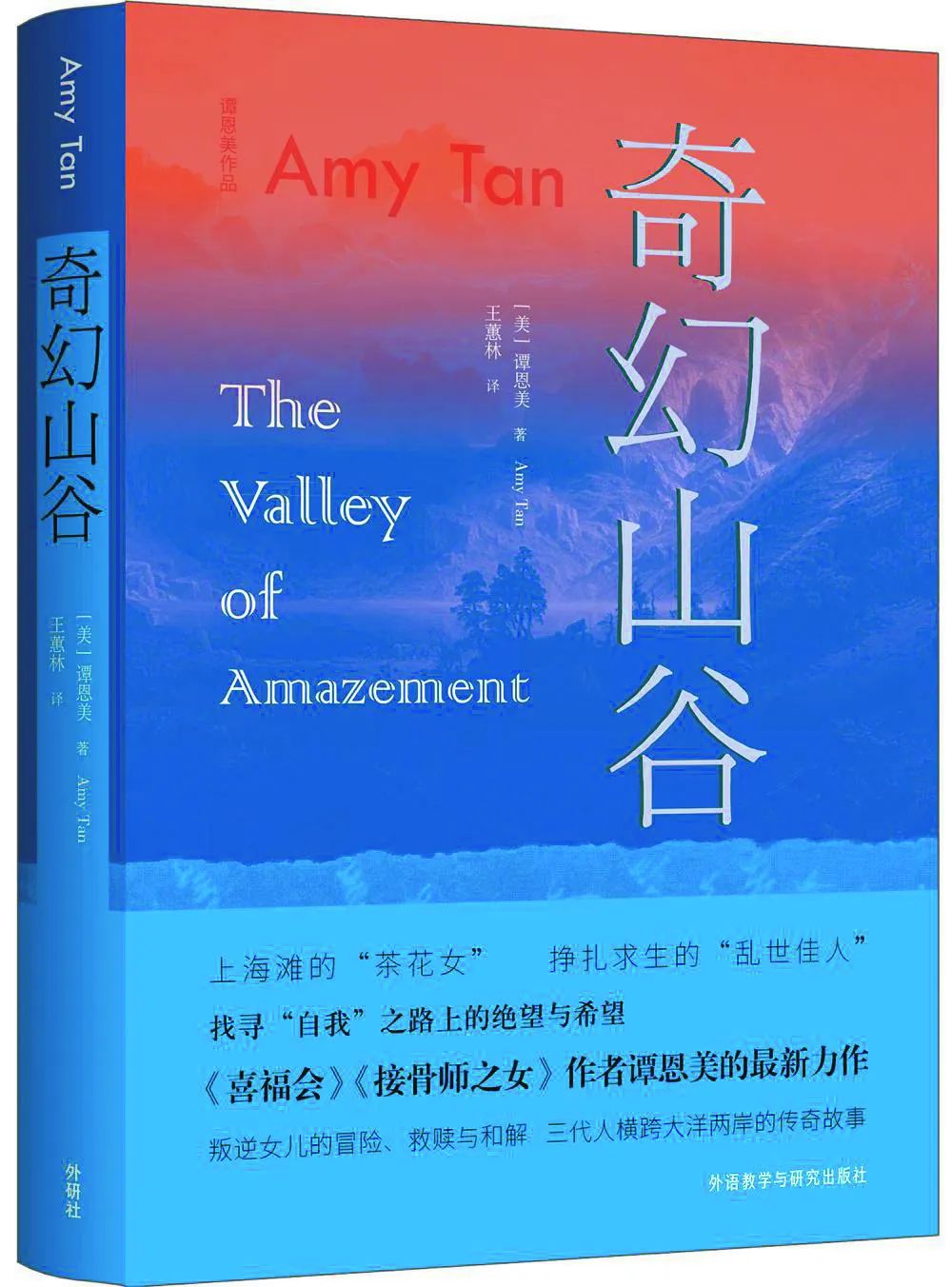
Tan Enmei: Yes, I read it.
Wang Jinghui: That book was adapted into a movie. When I finished reading your "Fantasy Valley", I feel like it is a sequel to the overseas version of "Biography of the Sea", and the scene is more magnificent and exotic, so I feel that this book can be displayed on the big screen.
Tan Enmei: I have read the Biography of the Sea Flowers and I have also watched the movie "Sea Flowers". It is really beautiful. What surprised me and was happy is that the characters in the movie spoke Shanghai dialect, which was the dialect that my mother said. Many behaviors and tones in it are typical Shanghai Fan, just like my mother and my Shanghai relatives speak. So I like to watch this movie very much, especially when many actors are not in Shanghai, because they have to play Shanghai people, they must learn Shanghai dialect, which really impressed me.
Wang Jinghui: Regarding the prototype of the characters, I also want to know that the young people in the "Daughter of the Bone Master" we have talked about before opening Beijing. Does anyone in real life have given you the inspiration of this character?
Tan Enmei: I have a friend before. He is like a spiritual mentor for me. He has passed away, but we have stayed in China for a while. He told me a lot of things, such as gardens. The process, the tradition of the representative, and what the Chinese spirit is. These explanations are very important for me -let me understand the choice and furnishings of stones, the meaning of the design of the trails, and so on. He helped me better understand the Chinese culture at the spiritual level. We will also go to the gardens and museums together to see those paintings and buildings from other cultures. However, if you peel off the shell, I mean the metaphor of the metaphor, you will see the level of the Chinese connotation inside. At that level in China, it has been there from the beginning, and those people try to apply it to another culture on it. But Chinese culture is still there. My friend explained to me the tenacity of Chinese culture. No matter who used to try to cover it, the Chinese spirit will always remain there. I think the same is true now. In China, many people are called Western things, but in fact, China has long been ahead, far surpassed the standard of "Western -style". China is not the West. China is gathering, not transformation.
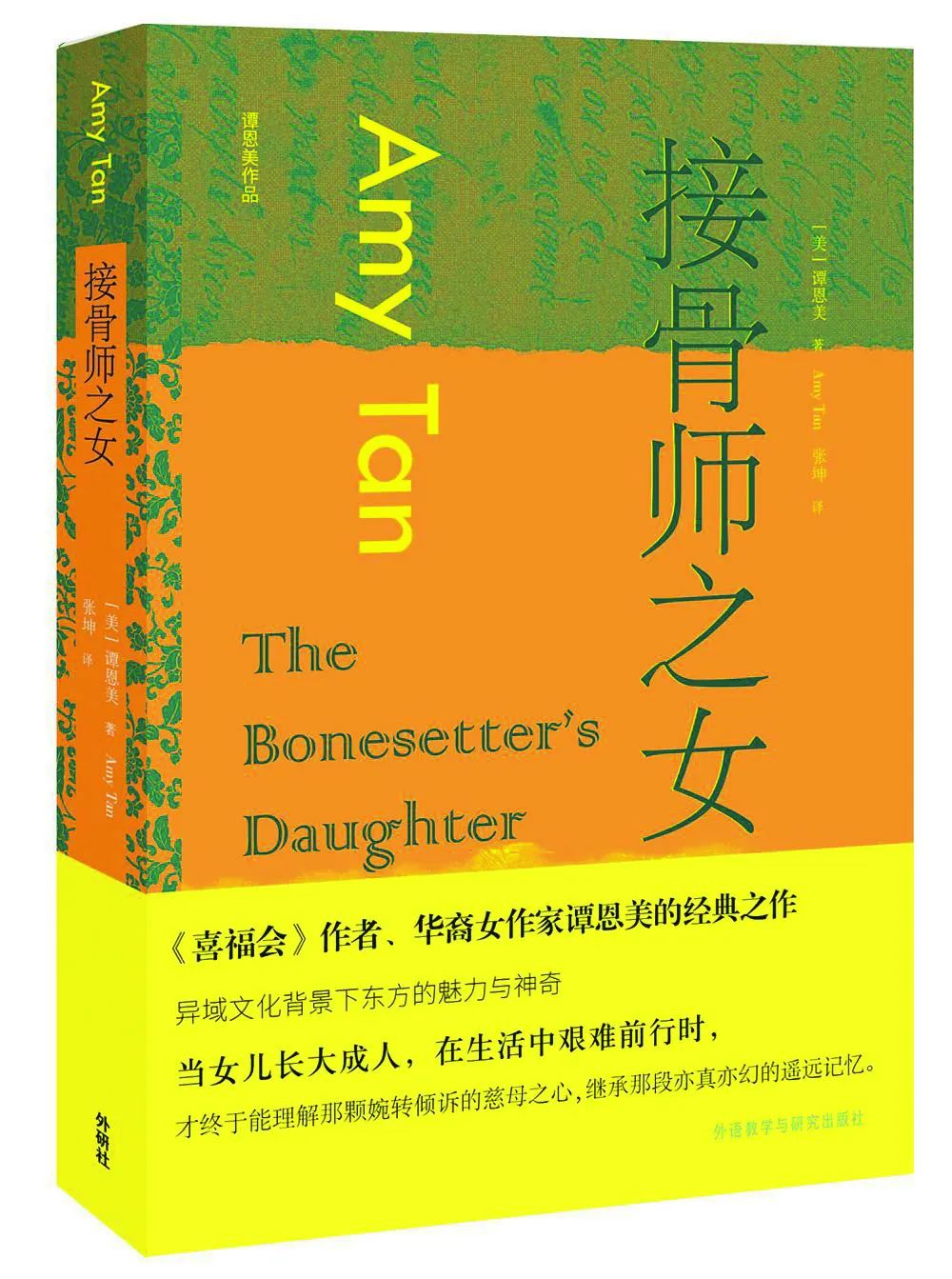
I am always thinking about China's understanding of "Tao". I went to the Asian Art District of the Metropolitan Museum of New York. One of my friends was the curator there. His introduction allowed us to learn more about those art. Looking at these paintings, I wondered why some artists can open a certain artistic style and creative. After they opened the precedent without any effort, everyone else followed the imitation: those who followed the imitation would try to imitate or capture some essence in the genre. Maybe they have the ability to do this and even be similar; maybe they can put It does it gorgeous and has some of their own characteristics; it may also be very godly, because the content you feel from it is so vast, but their creations will never be as effortless as the original creators, and naturally reveal it naturally. Essence So whenever I see Chinese art, I think of this. This "effortless" is related to some spiritual spirit of the artists at that time.
Wang Jinghui: In your "Save Fish Fish From Drowning", the chapters of the gallery also have this description of artistic feelings. Now let's talk about the name of the book "Save the Fish of Drown". The title of this book has a contradictory connotation. How can a fish drown? How did you think of this title?
Tan Enmei: First of all, when I heard others talking about immigrants from China, "If you want to save these immigrants, you need to take care of them and settle their for the rest of their lives." Among those who say this, some people are malicious, as if they are burdens on this, and some people are kind, thinking that more people will make their lives more colorful. I found that this is related to the intention of people's beginning. What is your intention when you say you want to save some people? If you see someone drowned and you know how to save him, he might become a burden on your life, will you still be able to save him? I have read the expression of "saving the drowning fish" somewhere, and then wrote it into a story about "intention". I obviously thought of "I want to do a good thing", but the result will be bad. This made me think about our intentions in our lives -whether it is for ourselves or for others. What is the intention or motivation? What are possible consequences? If the result is unexpected, but this is not what you originally planned, should you attribute to yourself? I see many people who happen to happen to themselves in daily life. They will say, yes, thanks to me. If there is a bad thing, can you say "I haven't thought it would be so bad"? Isn't it your fault? This is necessary to mention the question of "responsibility". Is the consequences be borne by those who go through all this? Should they be affected by these? If you did one thing that you didn't think of the result, but some people had the consequences, would you have no responsibility? This is why I chose the image of "saving the fish in the water" -take out the fish out of the water, let them flutter, unable to breathe, and eventually die because of the hypoxia of water. Some people are still talking about them. The intention is obviously saving the fish in those water. Therefore, the essence of "intention" is an important issue. Wang Jinghui: Yes, in fact, when I read the fable story of "saving fish" in the novel, my feelings are the most devout person in fact, in fact, he wants to make a profit from "saving fish". of.
Tan Enmei: Yes, this is the case. When I created this book, I saw too much "intention" to be used, not only at the world level, but also between individuals. When someone said, "I don't want to hurt you", you have to understand that that person does not want to take responsibility, but in fact, their original intention is only for themselves. For me, this question can be asked at any time, especially the United States. When you look at what happened around, you must ask, what are these politicians doing? What are their intentions for these things? In fact, they are very selfish. They said it seemed to be doing some good things, but they were actually doing something bad.
What I pay attention to is the whole problem of intent, processes, responsibilities, and results, not only to see the whole world, but also my own life. People told me that I opened a precedent for other Asian American writers, or I succeeded in doing this, that. But this is not the original intention of writing a book. I write for myself, to understand my mother. I write because I like to write, and I never say that I write to break the obstacles to other writers. So when people say this, I try to explain to them that it is not my credit. They are always "no no." Now I will only say, "Oh, thank you, I am very happy to have such a result." Some people told me other things, such as "I read your book, I left my husband." I thought in my heart, okay, I am not responsible for this. I write this book is not to divorce people. Perhaps for that female reader, divorce is a good thing, but this is not attributed to me, nor my fault.
Wang Jinghui: You believe in the memoir, "Writing is for yourself, writing about your life ... No matter how others talk and interpret you, they are all imagined by themselves." You also think that "sending a person's file to the library does not mean that it has obtained symbolic immortality, which is an eternal misunderstanding." What do you think of the relationship between writing and misunderstanding?
Tan Enmei: What I am writing, what my intention is, and what I have seen and I have seen what I have heard has not fully complied with my thoughts. I don't know the reason for my creation, of course, this is also normal. How can others know the intention of my creation? They did not experience my life. They hadn't seen my grandmother's photos and felt so shocked. They do not have the same reaction to the load of humiliation. I'm not criticizing people's comments about my work, but they don't understand me. And it is impossible to fully understand.
(Wang Jinghui is a professor at the Department of Foreign Languages of Tsinghua University, doctoral supervisor)
Content source: "Literature and Art" September 222, 4th edition
WeChat editor: Lu Yimeng
- END -
Collection: How to inherit the salt technology in the Middle Ages so far?
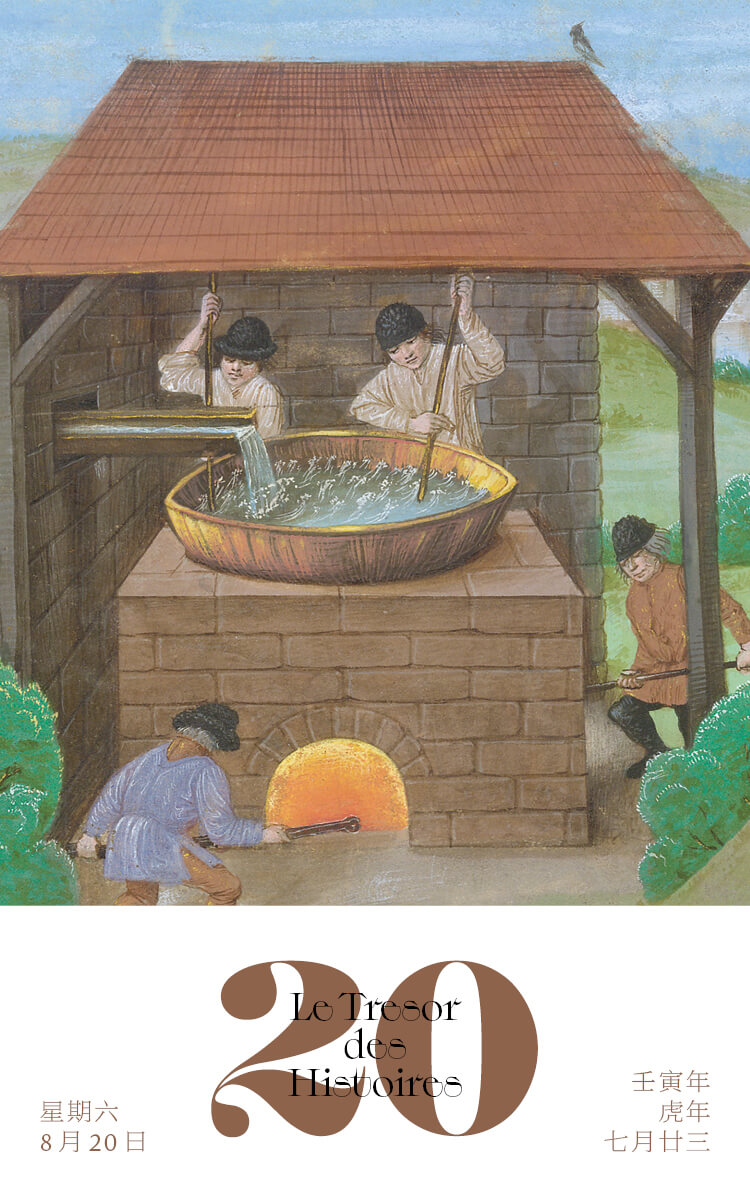
Zhanlu's collection calendar, a civilized treasure every day, customize your exclu...
Zhang Qinghua: What is necessary writing?
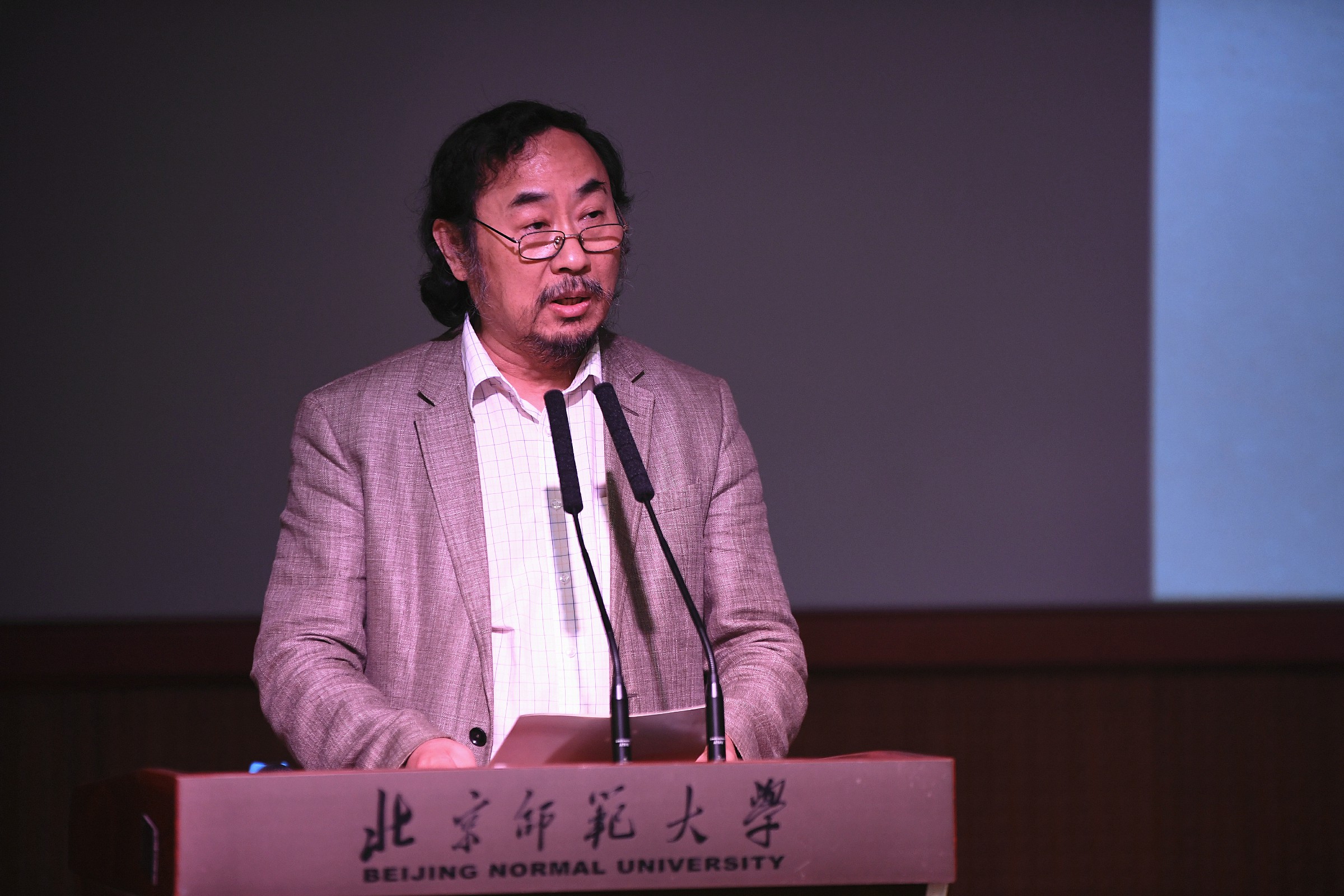
Necessary writingText/Zhang QinghuaGood poetry must be necessary.This constitutes ...